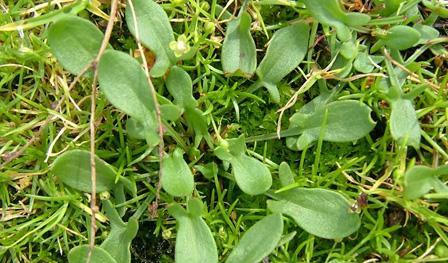Content
Plants from the buckwheat family are widely used in folk medicine. Sparrow sorrel is a perennial that helps in the fight against various diseases. However, in order to achieve a positive effect from the use of a medicinal herb, it is important to familiarize yourself with the indications and recommendations for use. Perennial leaves are not recommended for every patient, they have enough contraindications, ignoring which can harm health.
Description of the passerine sorrel
Sparrow sorrel is a perennial that grows from 15 to 45 cm in height. The root of the herb is quite branched and has several stems. The leaves are spear-shaped, small in size. Inflorescences are collected in neat panicles, flowers are unisexual. The flowering period is from early May to late July. The plant propagates in a vegetative way.
The benefits and harms of the plant
Perennial leaves are rich in tartaric and oxalic acids. Contains carotene, glycoside and oxalates. In addition, useful grass contains:
- salt;
- iron;
- flavonoids;
- anthraquinone;
- tannins;
- proteins;
- resin;
- lipids;
- vitamins A, C, K.
The leaves and root of the herb are broad-spectrum. On their basis, decoctions, teas and infusions are taken. Thanks to the beneficial properties, such drinks will help:
- strengthen blood vessels;
- have a laxative effect;
- raise immunity and make up for the lack of vitamins;
- remove allergens from the body;
- cleanse the blood;
- help in the treatment of oncological diseases at the initial stage;
- disinfect the affected areas of the skin.
In addition to this list, the passerine sorrel is capable of having a choleretic effect.
However, decoctions from the leaves and roots of perennials will not be useful to everyone. It is not recommended to use herbal decoctions for people suffering from diseases of the urinary tract, stomach ulcers, gastritis of high acidity. The composition contains acid and salts, which can cause serious harm to the body.
Where grows
The plant takes root well and grows in almost any conditions. Sorrel loves fertile and slightly acidic soils. Grows in forests, meadows and meadows. Particular preference is given to places that are located near water bodies.
Sparrow sorrel is not afraid of changes in the landscape, painlessly tolerates frequent mowing. After a couple of weeks, it grows again with green mass.
The use of the passerine sorrel
Sparrow sorrel is widely used not only in folk but also in official medicine. The plant is taken both internally and externally. For external use, sorrel is used as a means for rinsing the throat, treating wounds, and skin rashes.
Sparrow sorrel is regularly used to improve the functioning of the whole body. Perennial herb is useful for:
- proper functioning of the gastrointestinal tract. Leaf infusions improve appetite, normalize intestinal processes, and have a choleretic effect. Such decoctions improve the functioning of the liver and gallbladder. They have a laxative effect, help with bleeding hemorrhoids. Often, sorrel infusions are used for dysentery;
- normalization of blood sugar. Sparrow sorrel is useful for diabetes mellitus. The herb-based decoction speeds up metabolic processes in the body, helps to reduce weight and maintain normal sugar levels;
- cleansing the body. Herbal teas can cleanse the blood, liver and intestines. It is especially useful to use sorrel for poisoning;
- allergy treatment. Sparrow sorrel helps to remove toxins and allergens from the body;
- of cardio-vascular system. A perennial plant normalizes blood pressure, improves heart function, cleanses blood vessels.
In addition, the herb is widely used in cooking. Vitamin salads are prepared from the leaves, added to soups, borscht, frozen or canned.
In the autumn-winter period, regular intake of perennials can be an excellent prevention of vitamin deficiency. An infusion of leaves raises immunity, replenishes the lack of ascorbic acid and other vitamins in the body.
A remedy that increases the body's defenses is prepared from 1 tbsp. l. herbs and 1 tbsp. hot water. The composition is insisted for about 2-3 hours and taken orally. To improve the general condition, it is enough to drink 3 tbsp. in a day. After a week, you can see a positive result from the application.
For viral infections, colds or flu, perennial leaf tea will also be useful. This drink has anti-inflammatory, antipyretic effects, can help with coughs and sore throat.
For the treatment of affected skin areas, infusions are often used. The composition is made more concentrated. For cooking, use 200 ml of hot water and 2 tbsp. l. fresh grass.
Measures for the control of passerine sorrel
When planting in summer cottages, the passerine sorrel can bring a lot of trouble. The plant belongs to weeds, prevents the proper growth and development of vegetable crops. Small sorrel absorbs nutrients that are in the soil.
Chemical and agrotechnical methods are used to control the weed. The chemical treatment of the site with special preparations should be attributed. Agrotechnical means:
- compliance with crop rotation;
- processing of seed from pests;
- proper planting and care of vegetables.
Conclusion
Sparrow sorrel is a broad spectrum herb. The plant has a powerful anti-inflammatory effect, has a beneficial effect on the entire body. By properly preparing the broth, and regularly taking it inside, you can fill the lack of vitamins and vital trace elements in the body. However, it is worth remembering that for the treatment of serious diseases, perennials are taken in combination with other drugs, but not as a main remedy.









